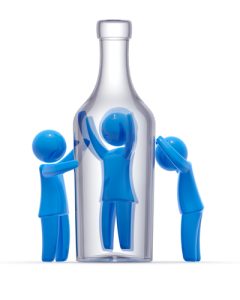I. Introduction
The field of substance abuse counseling has grown in importance. Society understands addiction and mental health issues better now. This profession plays a vital role for individuals with substance use disorders. Counselors offer both guidance and therapeutic strategies to help recovery. Experts recognize the complexities of addiction more today. The demand for qualified counselors has surged. These professionals provide empathetic and educated support. Starting a career in this field involves a set path. It includes education, hands-on experience, and licensure. This essay explores the steps required to become a substance abuse counselor. It looks at necessary educational qualifications and required certifications. It also covers essential skills for effective counseling practice. We will outline these components clearly. People interested in this rewarding career can better understand the process. They will learn how to succeed as substance abuse counselors (Brandé Flamez et al., 2017-05-25).
A. Definition of substance abuse counseling
Substance abuse counseling is a specialized field focused on assisting individuals dealing with addiction and substance use disorders. This area covers a variety of therapeutic methods meant to aid recovery and promote long-term wellness. Counselors work with clients to identify the underlying issues that contribute to substance abuse. They provide support through evidence-based strategies such as cognitive-behavioral therapy and motivational interviewing. The industry also focuses on the professional status of substance abuse counseling, including credentialing and scope of practice. Research indicates a pressing need for better integration of addiction counselors within the broader behavioral health system. This highlights the importance of clear qualifications and training programs for effective service (Angela J Beck et al., 2018). Ongoing federal regulatory efforts signal a commitment to addressing the complexities of substance abuse. This trend emphasizes the relevance of skilled counselors to manage these challenges (Maxim W Furek, 2011).
B. Importance of substance abuse counselors in society
Substance abuse counselors are key to building healthier communities and helping individuals overcome addiction. These professionals provide necessary support and guidance. They also serve a large role in society by addressing the widespread problem of substance misuse. Counselors help clients use their motivations and handle challenges. Research highlights this work. Recovering counselors noted that their own experiences with addiction created a desire to give back and support others in similar situations (Shaari AAH, 2021). Schools also use prevention strategies. This shows the need for substance abuse counselors to identify at-risk youth and provide early intervention services (Natoya H Haskins, 2012). Counselors strengthen communities and help reduce the stigma surrounding addiction. Their work supports societal well-being.
II. Educational Requirements
Candidates must meet specific educational requirements to become a substance abuse counselor. These vary by state and employer. Aspiring counselors usually start with a bachelor’s degree in psychology, social work, or counseling. This degree covers human behavior and therapeutic techniques. Many positions require a master’s degree in counseling or a related field. Clinical settings often demand this for advanced knowledge and skills. Counselors must also complete supervised clinical experience through internships or practicum placements. This training builds hands-on skills to help individuals with addiction (Gary L Fisher et al., 2009). Relevant licensure or certification is also necessary. It proves professional competence and follows ethical standards. This education prepares individuals for successful careers in substance abuse counseling.
A. Necessary degrees and certifications
Aspiring substance abuse counselors complete specific educational and certification steps. These requirements prepare them for the job. A bachelor’s degree in psychology, social work, or a related area usually comes first. It provides knowledge of human behavior and therapy techniques. Many counselors then get a master’s degree. This degree improves their understanding and qualifies them for a license in most states. Earning specific credentials is also necessary. Please also review AIHCP’s Substance Abuse Counseling certification to supplement your professional standing.
B. Relevant coursework and training programs
Relevant coursework and training programs are necessary to prepare for a career as a substance abuse counselor. These academic programs provide basic knowledge in addiction theories, counseling techniques, and ethical practices. They give aspiring counselors the skills to address the complex needs of clients. Courses focused on behavioral health improve understanding of substance use disorders and their impact on individuals and families. Specialized training programs also cover modern issues like the opioid epidemic. Practitioners must stay adaptable and know about current trends. Ongoing education is important because the field of addiction counseling changes constantly. Offerings and requirements often change. Staying informed about new curriculum and training opportunities is important (N/A, 2025). These educational shifts highlight the need for continuous professional development in the field (Angela J Beck et al., 2018).
III. Skills and Qualities Needed
A successful substance abuse counselor needs many skills and qualities to work well with clients. Empathy, patience, and strong communication skills are most important. These traits allow counselors to build trust and rapport with individuals struggling with addiction. Counselors must also understand the psychological, social, and biological factors that influence substance use. This knowledge helps them create effective interventions. Addiction treatment changes often, and new roles in recovery support have emerged. This creates a need for clarity about professional responsibilities ((William L White)). Ongoing professional development is necessary. The workforce in this field needs continuous training to improve their ability to address complex client needs ((Mullen J et al., 2010)). Aspiring counselors develop these skills to help their clients recover. They do this while managing the challenges of a demanding profession.
A. Essential interpersonal skills for counselors
Counselors need strong interpersonal skills. This applies particularly to those who treat substance abuse. Good communication builds the therapeutic relationship. It helps counselors build trust and rapport with clients. These clients may deal with shame, stigma, or vulnerability. Active listening shows empathy. The counselor understands the client’s specific experiences. Then the intervention fits the person better. Nonverbal communication skills help too. These include proper eye contact and a warm tone. They improve the counselor’s ability to show understanding and support (2000). Cultural competence is another key skill. It prepares counselors to work with diverse backgrounds and belief systems. These factors influence a client’s relationship with substance use. Counselors use these skills to create a space for healing and recovery. This aids clients on their path to sobriety.
B. Importance of empathy and active listening
Empathy and active listening are foundational skills for aspiring substance abuse counselors. They build trust and rapport with clients facing major challenges. Empathy allows counselors to connect deeply with client experiences. It validates feelings and creates a safe place for open dialogue. This connection is necessary. Those struggling with substance abuse often deal with shame and stigma. This stops them from seeking help. Active listening involves hearing words and understanding the emotions behind them. This leads to better intervention strategies. Counselors use this process to tailor approaches to individual needs. This improves the therapeutic relationship and treatment plans. Mastering these skills is required for supporting client recovery (Laura J Veach et al., 2017-10-20).
IV. Gaining Experience
Gaining experience is a central part of becoming a successful substance abuse counselor. It lets people apply theories in practical settings. Internships at rehab centers or mental health facilities offer hands-on practice. Aspiring counselors interact directly with clients and learn the details of addiction recovery. Watching seasoned professionals also builds skills like empathy, active listening, and crisis intervention. These abilities are necessary for effective counseling. Attending workshops and seminars improves understanding of new treatments and best practices. This exposure strengthens a resume and builds confidence for the challenges of the field (Gary L Fisher et al., 2009). Hands-on experience acts as a base. It connects academic learning to real-world use.
A. Internships and volunteer opportunities
Internships and volunteer roles are necessary steps for future substance abuse counselors. These experiences offer a clear look into the field and improve their practical skills. Internships let students work directly with experienced professionals. Students observe and help apply therapy methods and treatment plans. This practical work helps them understand the difficult parts of addiction counseling. Volunteer jobs in community groups or treatment clinics are also useful options. Candidates build empathy and people skills while working with many different groups affected by substance use. These roles help build a professional network. A strong network helps with future job searches and finding mentors. Internships and volunteer work add to classroom learning. They give new counselors the confidence and ability to truly help their clients (Leon-Guerrero A, 2024-12-16).
B. Networking within the substance abuse counseling community
Building a strong network in the substance abuse counseling community is necessary for professional growth. It also helps with client support. Counselors, treatment facilities, and community organizations collaborate to share methods and resources. This exchange is important because evidence-based treatments change often. Networking provides access to key information. For instance, the TCU Mapping-Enhanced Counseling manuals contain new therapeutic techniques. These strategies help engage clients in recovery discussions (N G Bartholomew et al., 2005). Research on treatment advances continuously. The Clinical Textbook of Addictive Disorders highlights these changes. Staying connected to experienced professionals is necessary. They can guide counselors through complex cases and new practices (Richard J Frances et al., 2005). Counselors should join professional organizations and attend seminars. This improves their own work. It helps the care system in the community. Patients benefit from this effort.
V. Conclusion
Becoming a substance abuse counselor involves many steps. The process requires education, training, and personal commitment. Candidates must earn relevant degrees and finish supervised clinical hours. They also need to obtain specific certifications. Personal traits like empathy and resilience are necessary. Strong communication skills build trust with clients facing addiction. The demand for counseling is rising due to a public health crisis. These professionals play a critical role in society. Future counselors are not just starting a career. They accept a position with serious social responsibilities. Individuals learn these skills to help people with substance use disorders. This work leads to healthier communities (Tang M, 2018-08-29).
A. Summary of the path to becoming a substance abuse counselor
Becoming a substance abuse counselor combines education, clinical experience, and certification. Students typically earn a bachelor’s degree in psychology, social work, or a related field. This builds a foundation in mental health and counseling. Most candidates then finish a master’s degree in counseling or a substance abuse program. They gain practical experience through internships or supervised clinical hours. These roles allow them to apply concepts in real settings. State certification is mandatory for practice, and local rules set the requirements. Demand for substance use disorder services is rising. Counselors must understand funding mechanisms and reimbursement patterns (Angela J Beck et al., 2018). Running outpatient programs also requires financial management skills and cultural competence (Department U of Health and Services H et al., 2006). This education and experience prepares counselors to meet complex client needs.
B. The impact of effective counseling on individuals and communities
Effective counseling acts as a foundation for fighting the widespread issue of substance abuse and helps both individuals and communities. Practitioners use culturally competent counseling methods to address diverse needs. The population is becoming more multicultural. Projections show that minorities will make up 50% of the nation by 2050 (Boyd L et al.). Such awareness strengthens the therapeutic relationship and helps counselors tailor interventions to specific cultural contexts. On an individual level, effective counseling supports major recovery outcomes. Individuals regain control over their lives and improve their mental and physical health (Baral K et al., 2024). These individuals recover and rejoin society. Communities then experience reduced healthcare costs and lower crime rates. The overall quality of life improves. These results show the wide benefits of effective counseling for substance abuse.
Additional Resources
“Addiction Counselor (formerly known as Substance Abuse Counselor)”. Cleveland Clinic. Access here
Thornton, E. (2025). “A Guide to Substance Abuse Counselor Job Responsibilities”. Substance Abuse Counselor org . Access here
Ko, N. (2025). “Substance Abuse and Addiction Counseling Career Overview”. Psychology.org . Access here
Brown, K. (2024). “Substance Abuse Counseling”. Addiction Group. Access here




















